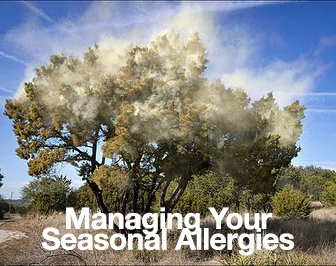
Many associate environmental allergies with springtime, but for those living in Texas, winter has its own share of allergens. Every year from December until February, gusty northwest winds spread cedar pollen throughout the state.
Typically, the highest pollen counts are seen in late December and early January. It is difficult for an allergist to predict how severe an upcoming season will be, as there are a number of factors, such as temperature and rainfall to consider.
Symptoms of Cedar Pollen Allergy
Symptoms of an allergy to cedar pollen, or as the locals call it, “cedar fever,” include:
- Runny nose
- Nasal congestion
- Itchy eyes, mouth or ears
- Sluggishness
Protect Yourself from Pollen
Eliminating your exposure to cedar pollen is the only way to prevent allergy symptoms. Texas allergists recommend:
- Keeping your doors and windows closed
- Using high-quality air filters in your home
- Washing your hands and face when you come indoors
- Being mindful of pets that may bring allergens in from the outdoors
